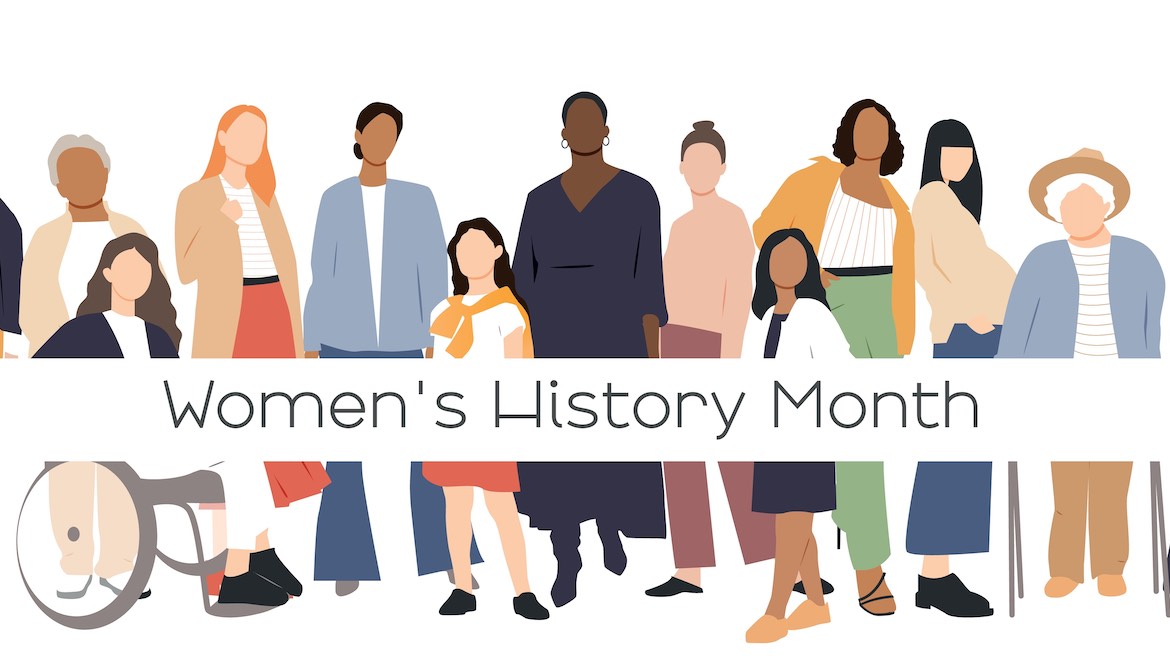6 minutes
CUES staff members share favorite books and movies to consume in March.
Last month the CUES staff and I recommended books, movies and more to celebrate Black History Month. We’re back with more suggestions for Women’s History Month.
As I have described previously, I am a big reader. Because I track my reading obsessively, I can tell you that more than 90% of the books I read are by female authors. So, while I have a lot of titles I could recommend this month, I’ll stick to the best of the best.
But before we get to the books, if you haven’t yet been to America’s Credit Union Museum in Manchester, New Hampshire, you can learn more about its Herstory exhibit about pioneering women in the credit union movement and watch a live stream video from the launch event last September.
Also, during my research, I found this great blog post from $655 million Primeway Federal Credit Union, Houston, about pioneering women in finance.
Historical Fiction About Real People
Historical fiction is a favorite genre here at CUES. If you didn’t get to all the resources we suggested last month, do not worry! You can consume them in March for Women’s History Month. There’s the recommendation from Dawn Abely, SVP/chief sales and member relations officer, to read and watch Hidden Figures, the true story of the Black female mathematicians at NASA whose calculations helped fuel some of America's greatest achievements in space.
My suggestion of The Personal Librarian by Marie Benedict and Victoria Christopher Murray about Belle da Costa Greene, the personal librarian to J.P. Morgan in the early 20th century, is another great book to tackle this month.
But there’s so much more! Sara Dyer, director of executive education and meetings, recommends On the Basis of Sex, a movie about Ruth Bader Ginsburg, and the documentary RBG on Hulu.
Here are a few others:
The Magnificent Lives of Marjorie Post by Allison Pataki is a fictional account of American heiress and trailblazer Marjorie Merriweather Post.
The Paris Library by Janet Skeslien Charles is based on a true story of the librarians at the American Library in Paris during WWII.
Band of Sisters by Lauren Willig is based on the true story of a group of young women from Smith College who travel to France during WWI to offer supplies and aid.
Non-Fiction and Memoir for Women's History Month
If you didn’t get enough RBG above, read her autobiography My Own Words.
CUES Senior Editor Lisa Hochgraf recommends Becoming by Michelle Obama and the related documentary. I also loved this on audio.
Tony Hill, SVP/chief marketing officer at CUES, shares a favorite: A Taste of Power by Elaine Brown. “This is a great book about a Black woman’s rise to a leadership position in the Black Panthers in the 1970s. The Black Power movement was dominated by men, and Black women at that time often sat on the sidelines of the women’s rights movement to support the civil rights movement. So, her story is fascinating.”
And Hill’s wife suggests:
- Founding Mothers by Cokie Roberts looks like a fascinating read. According to the publisher, this is “an intimate and illuminating look at the fervently patriotic and passionate women whose tireless pursuits on behalf of their families—and their country—proved just as crucial to the forging of a new nation as the rebellion that established it.
- Through the Labyrinth: The Truth About How Women Become Leaders by Alice Eagly and Linda Carli addresses questions like: How far have women really come as leaders? Do stereotypes and prejudices still limit women’s opportunities? Do people resist women’s leadership more than men’s? And, do organizations create obstacles to women who would be leaders?
On Her Own Ground: The Life and Times of Madam C.J. Walker is by A'Lelia Bundles, Walker’s great-great-granddaughter. From the publisher: “The daughter of formerly enslaved parents, Sarah Breedlove—who would become known as Madam C. J. Walker—was orphaned at seven, married at 14, and widowed at 20. She spent the better part of the next two decades laboring as a washerwoman for $1.50 a week. Then—with the discovery of a revolutionary hair care formula for Black women—everything changed. By her death in 1919, Walker managed to overcome astonishing odds: building a storied beauty empire from the ground up, amassing wealth unprecedented among Black women, and devoting her life to philanthropy and social activism. Along the way, she formed friendships with great early-twentieth-century political figures such as Ida B. Wells, Mary McLeod Bethune, W.E.B. Du Bois and Booker T. Washington.”
There’s also a Netflix series based on the book starring Octavia Spencer.
In Eloquent Rage: A Black Feminist Discovers Her Superpower, author Brittney Cooper “reminds us that anger is a powerful source of energy that can give us the strength to keep on fighting,” according to the publisher.
She Said: Breaking the Sexual Harassment Story That Helped Ignite a Movement by Jodi Kantor and Megan Twohey reads like a page-turning thriller. I loved the journalistic “inside baseball” of this one. It’s also a movie.
More Historical Fiction About Women's Experiences
These books are based on history, but the protagonists are fictional.
The Vanishing Half by Brit Bennett is about twin sisters, inseparable as children, who chose to live in different worlds, one black and one white.
The Daughter of Doctor Moreau by Silvia Moreno-Garcia is, according to the publisher, “a lavish historical drama reimagining of The Island of Doctor Moreau set against the backdrop of nineteenth-century Mexico.” This one has elements of fantasy and science fiction. I adore Moreno-Garcia’s descriptive writing.
One of the reasons that I love historical fiction is that I learn so much about life in other times and places. That was certainly the case with The Stationery Shop by Marjan Kamali, which follows two teenagers falling in love against the backdrop of political upheaval in 1953 Tehran.
Kindred by Octavia Butler is about a modern black woman (in the mid-1970s) who is pulled back in time to the Antebellum South and the home of her slave-owning and enslaved ancestors. A TV adaptation for FX on Hulu debuted last December but was canceled after just one season. Here’s hoping another network will revive it.
The Book Woman of Troublesome Creek by Kim Michele Richardson is another book that taught me something new—about both the historical Pack Horse Library Project and the blue people of Kentucky.
The Island of Sea Women by Lisa See is set on the Korean island of Jeju and follows two girls who become friends while working in the sea with their village’s all-female diving collective. From the publisher: “This beautiful, thoughtful novel illuminates a unique and unforgettable culture, one where the women are in charge, engaging in dangerous physical work, and the men take care of the children.”
Finally, I like to start my day by reading a poem or two in the morning with my coffee. The work of Kate Baer is wonderful and easily consumed, especially if poetry scares you. What Kind of Woman is a collection about the beauty and hardships of being a mother, wife and woman. And in I Hope This Finds You Well, Baer makes amazing poetry out of from notes from followers, supporters and detractors, a ritual she describes as reclaiming “the vitriol from online trolls and inspires readers to transform what is ugly or painful in their own lives into something beautiful.”
It is possible that I read too much. But I’d love to hear your suggestions, nonetheless. What would you add to this list?
Theresa Witham is VP/publications and publisher at CUES.










